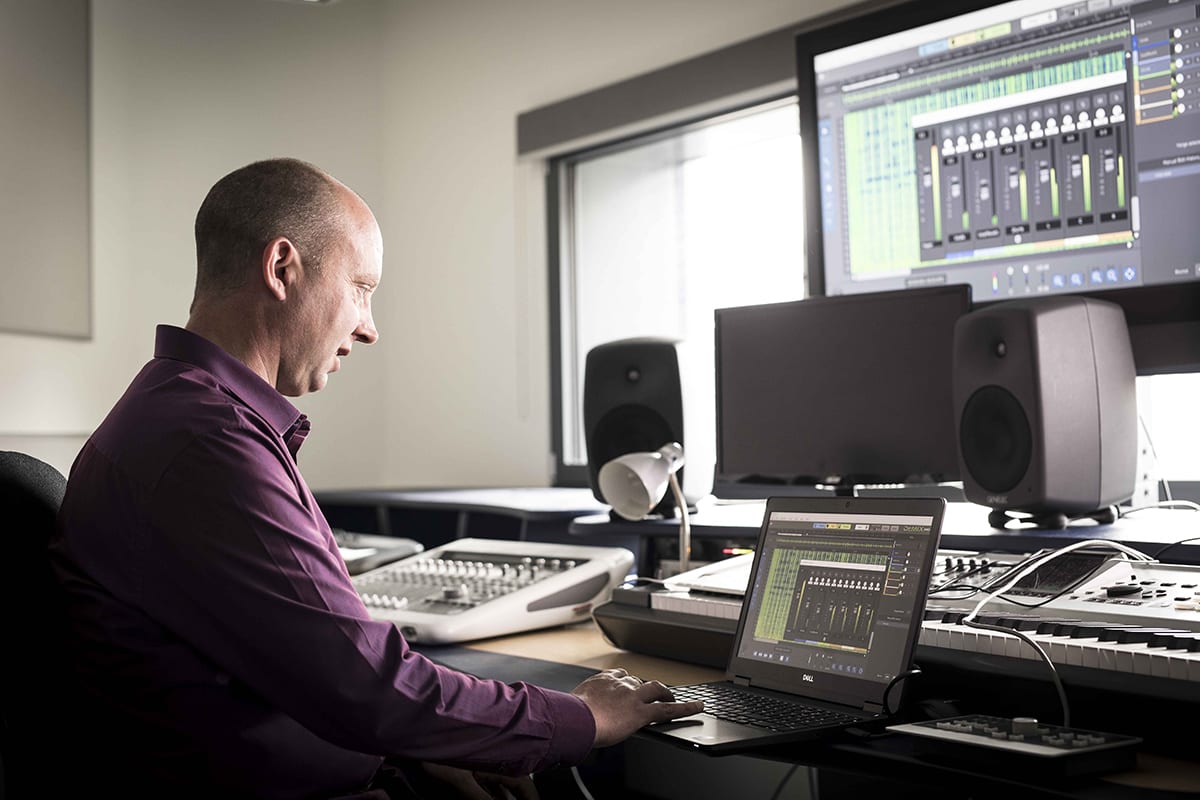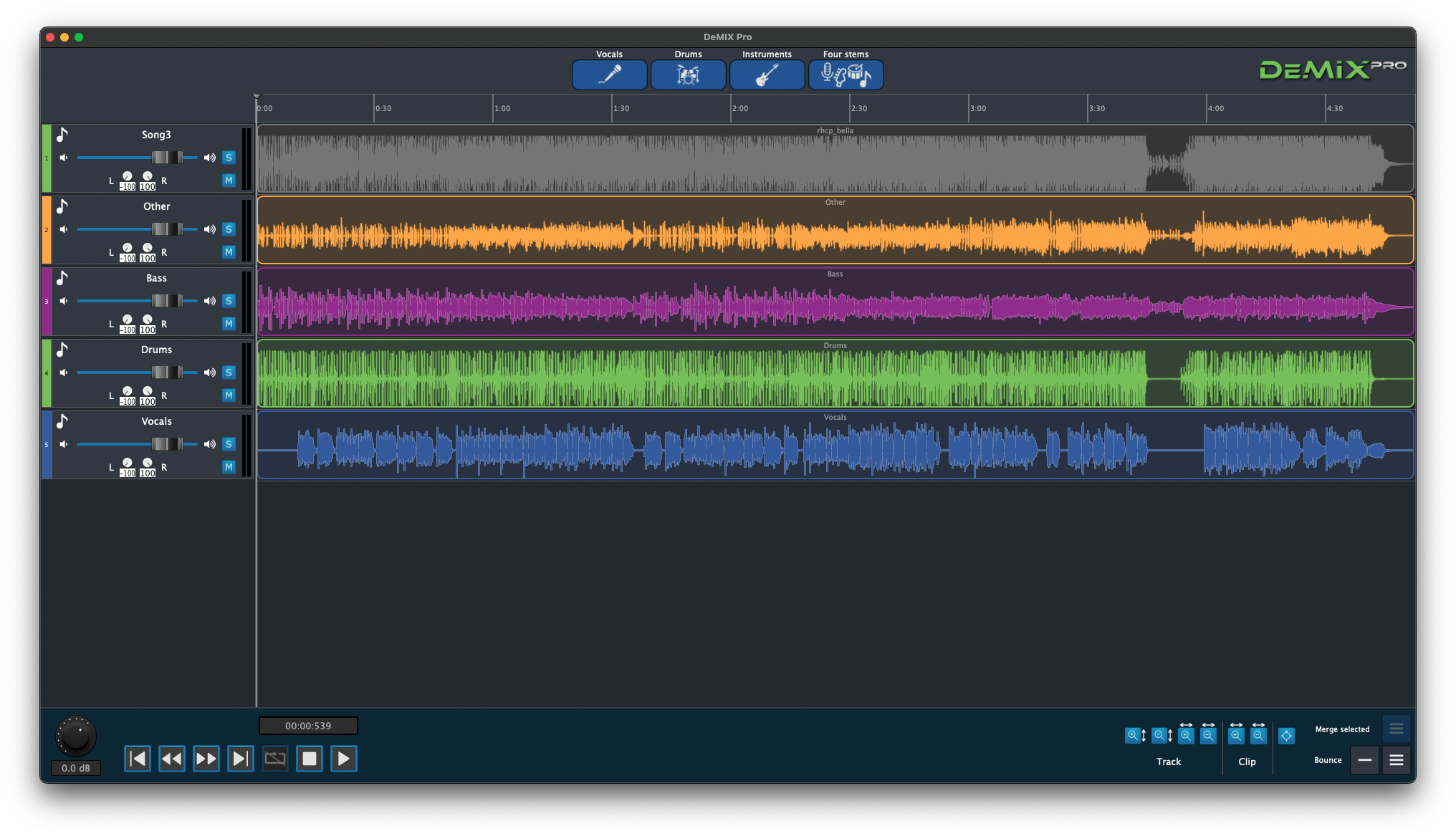Munster Technological University spinout AudioSourceRe hopes its technology will be the facilitator for new audio and content creation capabilities.

The human brain is really good at separating different auditory inputs to focus on what’s important in real time — this is known as the cocktail party effect, using the idea that when you’re at a party you can focus on what a specific person is saying and tuning out background conversations and music.
What comes naturally to us is a huge challenge for computers, however, and specifically for applications like music production and hearing aids. Until now, that is, because AudioSourceRe has developed artificial intelligence technology that is capable of detecting, separating and extracting audio and sounds from any soundscape in real time.
The company was spun out of Cork Institute of Technology, which subsequently merged with Institute of Technology, Tralee to form Munster Technological University (MTU) in 2021. The spinout is still based on campus, in the Rubicon Centre, with John O’Connell, co-founder, chief executive and head of commercial operations at AudioSourceRe, describing the affiliation with MTU as “a relationship we deeply nurture”.
Read more about Ireland’s ecosystem in our report and other spinout case studies:
Spinout factories: why Ireland’s universities punch above their weight
How Equal1 is building a desktop quantum computer
No more uncomfortable trips to the bathroom: how ProVerum tackles BPH
From karaoke to the internet of things
AudioSourceRe markets a range of software applications. Its flagship product, DeMix Pro, combines sound isolation algorithms with a spectral audio editor and a built-in multi-channel mixer. Essentially, the software lets users non-destructively separate (and merge) components of a track.

O’Connell sees applications in “smart technologies, microchips, devices, hearables and the internet of things” but also areas that may not be thought of traditionally as being ripe for innovation like “on-demand social karaoke” where O’Connell sees “original artist content in mobile apps whilst relying on low computational requirements for microchips without comprising the separated audio quality”.
A related software, DeMix Essentials, is specifically tailored to DJs and producers who wish to create high-quality samples and quick remixes from existing audios by separating vocals and instruments to create up to four separate audio stems.
DeMix Essentials is already a success for the spinout. O’Connell says: “Our early music software products have been sold to over 3,000 customers in over 70 countries and we recently became the first company to break through the frontier for on-device, real-time separation solutions.”
He continues: “What sets us apart from other audio-based spinouts is that we cater specifically towards audio detection, identification and separation. A once considered impossible engineering challenge has now been made possible by the advent of AI, and we as a company, are leading the way in this field because of the background of work we have acquired through Munster Technological University.”
O’Connell co-founded the spinout with chief technology officer Derry Fitzgerald in 2018 and the leadership has since grown to six people with decades of experience in the multimedia and digital software sectors. O’Connell himself started out in the publishing sector before moving into digital media, and he spent time working with government agency Enterprise Ireland as a business partner (a type of entrepreneurs-in-residence programme) from 2013 to 2018.
“I was looking around for a project for a while, and I was put in contact with a technology transfer officer at MTU and was granted access to see the audio separation research and saw the vast potential there,” O’Connell remembers. “I then partnered with Fitzgerald with the hopes of commercialising the research we had found and we have surpassed what we thought the technology could achieve.”

The audio editing software market is expected to double to around $8bn by the end of this decade, according to various research firms, with the widespread success of music streaming content already boosting the sector globally. It means there are huge opportunities. O’Connell says: “The last universally recognised challenge in audio is the ability to detect and extract high-quality naturally sounding audio from any soundscape for better repurposing and clarity.”
He continues: “The issue can be perfectly illustrated through the analogy of Photoshop, which has a lot of software around imaging photographs and videos allowing you to make changes. But the nature of audio is intangible because it cannot be seen, so making those changes is an impossibility without a proxy, which has caused restrictions in creative potential, value existing global assets and monetisation potential.”
O’Connell believes that the adoption of AI was key for the audio industry in tackling its largest hurdle in audio separation. “The advent of AI provided a breakthrough in our audio separation technology and we believe it is one of the facilitators of future audio used with companies being able to take content and breaking it down to its original parts,” he says.
A huge market ripe for fundamental disruption

Media is of growing interest to investors as highlighted in a report by our sister publication GCV that showed corporate-backed deals in the space increased from 454 in 2021 to 529 in 2022.
AudioSourceRe itself has raised a $2.1m seed round led by Atlantic Bridge’s University Bridge Fund, Enterprise Ireland and the startup’s founders. The funds will be used to hire specialist talent to, O’Connell says, “accelerate the development of real-time low latency capability that will allow our technology to run on-device/on-chip while maintaining the original quality of the separated audio.”
“Audio has exploded as a platform during the pandemic and it has become easier for people to access and consume media content as they seek more personalised and on-demand content,” O’Connell explains.
Historically, poor audio quality was a trade-off for accessibility, O’Connell notes, but this is changing, and it is happening around the world. “For example, less than 60% of music app users in China are not only willing to pay for enhancements but demand and expect ongoing enhancements in audio modification and playback features, audio devices and hearables,” he adds.
It is not surprising then that AudioSourceRe’s partnerships include a “leading music application in Asia”. Partners also include microchip manufacturers and a smart speaker manufacturer, O’Connell reveals.
He continues: “We have recently completed early proof-of-concept for internet of things/edge applications for sensor use in smart factory, retail and city applications. We have earmarked the recruitment of a senior business development executive for original equipment manufacturer and licensing partnerships and customer pipeline as part of our current funding round.”
The money will also help the spinout to expand R&D activities and commercial targets, and provide a runway until a series A round next year. And despite the current economic challenges, O’Connell is confident that AudioSourceRe will continue to thrive and receive funding in the future. “We are at the forefront of delivering solutions, which should continue to attract investors as we raise funding in late 2024,” he concludes.
Read more about Ireland’s ecosystem in our report and other spinout case studies:
Spinout factories: why Ireland’s universities punch above their weight
How Equal1 is building a desktop quantum computer
No more uncomfortable trips to the bathroom: how ProVerum tackles BPH








